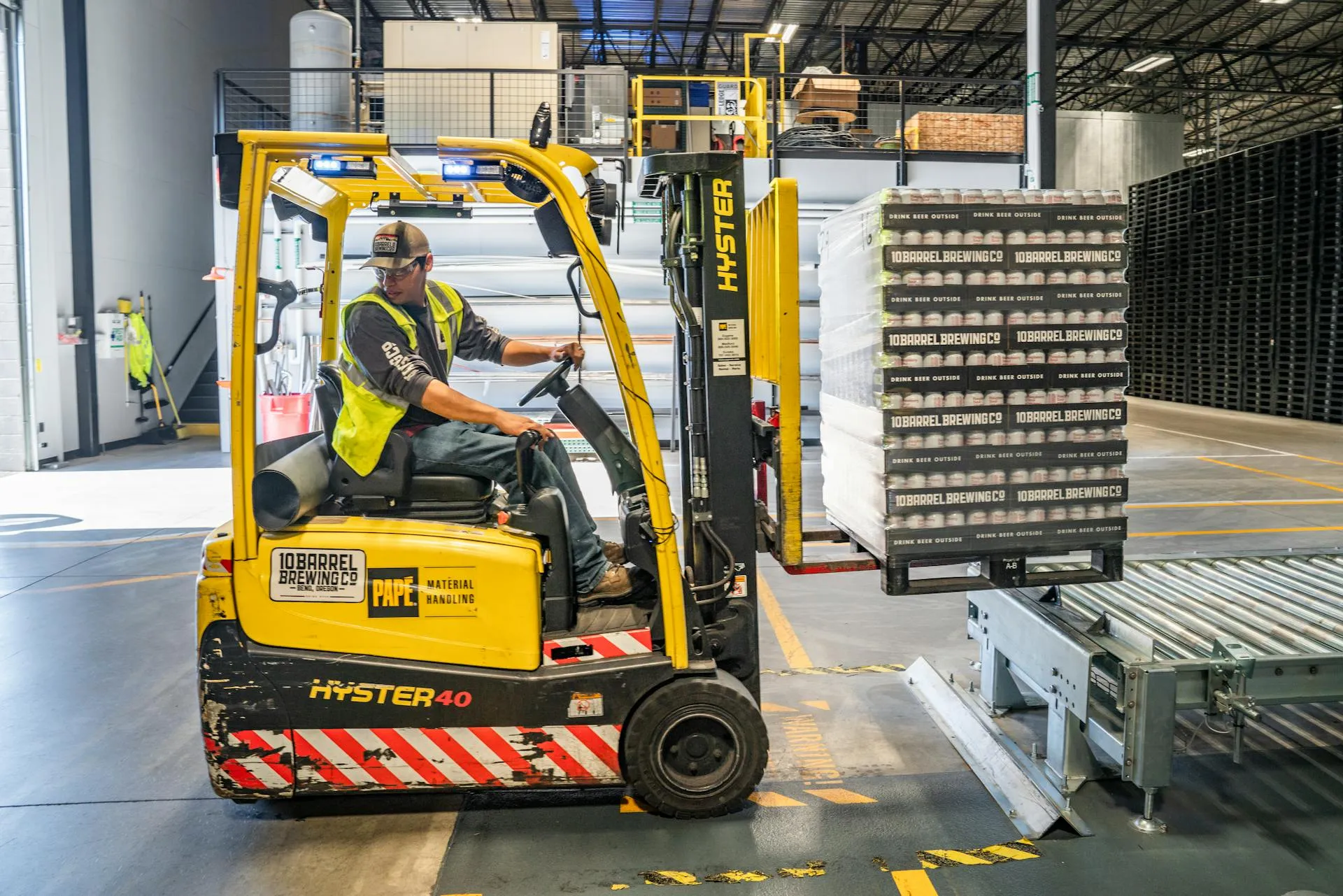The manufacturing industry is under immense pressure to adapt. Disrupted supply chains, evolving customer expectations, and a shortage of skilled labor have all accelerated the need for modernization. According to the World Economic Forum, manufacturers that fail to embrace digital transformation risk losing competitiveness and market share.
Salesforce is at the forefront of enabling manufacturers to embark on this digital transformation journey. By centralizing data, enhancing collaboration, and providing real-time insights, Salesforce empowers manufacturing leaders to make faster, smarter decisions that drive value.
What Digital Transformation Means for Manufacturers Today
Digital transformation in manufacturing isn't just about digitizing analog processes. It’s about fundamentally rethinking the manufacturing process to unlock new levels of agility, efficiency, and customer centricity. This transformation is powered by digital technologies such as AI, IoT, automation, and cloud computing.
Digital transformation in manufacturing refers to the comprehensive integration of digital technologies across all aspects of the manufacturing process. This includes everything from product design and shop floor operations to supply chain management and customer engagement. It represents a foundational shift in how manufacturers operate, compete, and deliver value.
At its core, digital transformation enables manufacturers to:
- Make real-time, data-driven decisions that improve agility and responsiveness.
- Unlock operational efficiencies by automating workflows and optimizing production planning.
- Enhance customer experiences through personalized service, accurate order fulfillment, and proactive support.
- Leverage artificial intelligence (AI), machine learning, and the industrial internet of things (IIoT) to reduce waste, enable predictive maintenance, and track products across the value chain.
According to the World Economic Forum, digitally advanced manufacturers are 2x more likely to outperform competitors in profitability and innovation. By investing in scalable platforms like Salesforce, manufacturers gain the infrastructure necessary to modernize safely, efficiently, and in alignment with long-term business goals.
Salesforce Manufacturing Cloud serves as the central nervous system for this new era. It enables manufacturers to connect customer data with operations, production, and the supply chain. The result: manufacturers digital enough to anticipate demand, reduce downtime, and improve the customer experience.
Related Article: Digital Transformation Solutions - A Complete Guide for Growth
Core Challenges Facing the Industry
Manufacturing companies face several systemic barriers:
- Legacy systems create data silos and hinder integration. According to a 2025 Deloitte report, 65% of manufacturers say legacy systems prevent enterprise-wide visibility.
- Lack of real-time visibility across the supply chain impedes responsiveness. Another 62% of manufacturing executives list end-to-end supply chain visibility as a top digital priority in 2025.
- Talent shortages and change resistance slow adoption of new technology. The National Association of Manufacturers projects a shortfall of 2.1 million skilled jobs by 2030, with upskilling lagging behind digital needs.
- Customers and regulators demand transparency and detailed product tracking. In a 2025 PwC survey, 71% of manufacturers reported increased regulatory pressure for traceability and sustainability reporting.
Related Article: CRM Implementation Services Explained -Strategy, Cost, & Value
These challenges make it imperative to adopt platforms that not only manage complexity but also simplify it. Salesforce delivers exactly that.
Salesforce as the Foundation for Smart Manufacturing
Salesforce brings together every aspect of the manufacturing lifecycle—from lead to service—on a unified platform. It provides a centralized data hub and strategic enabler of manufacturing agility.
With Salesforce, manufacturers can:
- Gain real-time visibility into sales, production, inventory, and service using Manufacturing Cloud and Tableau analytics
- Automate manual processes to boost operational efficiency—Salesforce users saw 26% faster time to market on average in 2024
- Collaborate seamlessly across departments and with partners through Experience Cloud and integrated supplier portals
- Leverage integrated AI tools like Agentforce to uncover insights, optimize forecasts, and enhance predictive maintenance
Moreover, Salesforce's composable architecture and out-of-the-box integrations with ERP, MES, and PLM systems make it uniquely positioned to serve as the digital backbone of modern manufacturing. This foundational shift enables manufacturers to eliminate silos, streamline workflows, and turn data into action.
Related Article: Salesforce Manufacturing Cloud - Everything You Need to Know
Technologies Accelerating the Digital Shift
Digital transformation in manufacturing is fueled by a convergence of technologies that transform operations. Salesforce's toolset accelerates this shift in the following ways:
- Agentforce: This AI-powered assistant acts as a real-time co-pilot for manufacturing teams, surfacing insights from Sales Cloud, Data Cloud, and Service Cloud to accelerate decisions. It enables manufacturers to respond to demand fluctuations, manage accounts, and prioritize service needs without jumping between systems.
- Salesforce Einstein GPT: Delivers generative AI-driven predictions and recommendations. From optimizing production schedules to supporting predictive maintenance, Einstein automates complex decision-making processes.
- Tableau & CRM Analytics: Enable real-time analytics across the entire value chain. Manufacturing leaders use these tools to visualize plant performance, track KPIs, and drive continuous improvement.
- Manufacturing Cloud: Purpose-built to unify sales and operations planning. It ensures forecasts, run rates, and customer commitments are aligned in one view, providing the accuracy needed for production and inventory planning.
- Data Cloud: Harmonizes data from across the ecosystem—ERP, IoT sensors, supplier platforms—into a single source of truth. This fuels smarter automation, compliance tracking, and cost control initiatives.
- MuleSoft: Powers API-led connectivity, integrating Salesforce with legacy systems, PLM tools, MES platforms, and third-party logistics. This connectivity reduces friction, boosts agility, and accelerates time-to-value.
When connected through Salesforce, these digital technologies reduce waste, lower costs, and improve overall equipment effectiveness to create a competitive edge that scales.
Related Article: Agentforce Use Cases - Real-World Applications for AI
Measurable Benefits from Going Digital with Salesforce
Digitally mature manufacturing companies consistently outperform their peers. By deploying Salesforce, organizations unlock measurable gains across financial, operational, and customer experience KPIs.
- Reduced costs through better planning, resource allocation, and process automation. A recent study found that manufacturers using Salesforce achieved a 21% average reduction in operational costs over three years.
- Enhanced supply chain visibility and agility, thanks to real-time dashboards and proactive alerts. Manufacturers leveraging Salesforce Data Cloud and Tableau reported fewer supply chain disruptions in 2024.
- Improved forecasting and inventory optimization, supported by AI-powered demand planning. Companies using Manufacturing Cloud with Einstein GPT improved forecast accuracy.
- More accurate product tracking and compliance readiness, driven by integrated IoT data and digital audit trails. According to a 2023 Accenture survey, 68% of digitally mature manufacturers exceeded traceability compliance standards.
- Higher levels of customer satisfaction and retention, through faster response times and personalized service. In 2025, Salesforce reported that manufacturers using Service Cloud and Agentforce experienced an increase in customer satisfaction scores year over year.
Together, these benefits represent more than just incremental improvements—they’re transformational outcomes. With Salesforce as the digital core, manufacturing companies are empowered to continuously improve operations, strengthen margins, and exceed stakeholder expectations.
A Scalable Approach to the Digital Transformation Journey
Digital transformation doesn’t require an overnight overhaul. Successful manufacturing leaders begin with scalable initiatives:
Deploy CRM capabilities to manage customer relationships more effectively. By centralizing account data, tracking interactions, and enabling intelligent sales forecasting, Salesforce CRM provides the foundation for strong customer engagement and revenue growth.
Use Manufacturing Cloud for demand planning, revenue forecasting, and operations alignment. The platform provides a shared source of truth that aligns sales and production, enabling more accurate planning, stronger supplier collaboration, and fewer missed commitments.
Implement predictive maintenance and product tracking tools powered by AI. With tools like Agentforce and Einstein, manufacturers can monitor equipment health in real time, reduce downtime, and improve traceability across the supply chain.
Scale transformation across plants, suppliers, and geographies. Salesforce’s composable architecture, automation capabilities, and integrations with ERP/MES platforms make it possible to extend digital innovation across the global enterprise.
Salesforce enables manufacturers to build momentum while ensuring long-term scalability and resilience.
Empowering the Workforce: Digital Transformation’s Human Advantage
While much of the digital transformation narrative centers on technology, manufacturing leaders must not overlook its impact on the workforce. The transition to digital tools doesn’t just modernize operations—it redefines how employees engage with their work, collaborate across functions, and deliver value.
Upskilling and Reskilling with Salesforce
As the World Economic Forum has highlighted, over 50% of all employees will require significant reskilling by 2025 to keep pace with technological advances. Salesforce supports this evolution through tools like myTrailhead, which enables custom learning paths for frontline workers, engineers, and service teams. Manufacturers can design role-specific training modules that upskill employees in areas such as AI use, IoT monitoring, and system integration.
Human + Machine Collaboration
Agentforce and Einstein GPT are not designed to replace workers—they’re built to augment human capabilities. These tools automate low-value tasks (like data entry or manual status reporting) and provide real-time recommendations, enabling workers to make better decisions faster. A 2024 McKinsey report notes that manufacturers integrating AI-driven decision support saw a 15% productivity boost without increasing headcount.
Driving Engagement and Retention
Connected, well-equipped employees are more engaged. Salesforce Experience Cloud facilitates collaboration between internal teams and external partners through portals and shared dashboards. With unified visibility into tasks, objectives, and feedback loops, employees are empowered to contribute strategically—not just execute orders.
A Modern Culture for a Modern Industry
Ultimately, digital transformation catalyzes cultural transformation. As legacy systems give way to modern platforms, organizations gain transparency, accountability, and agility. Employees are more likely to innovate, adopt new technologies, and align with company goals when working in an ecosystem that supports them.
Modern Manufacturing Demands Modern Infrastructure
The future of the manufacturing industry belongs to the digitally mature. As customer demands rise and operational complexity increases, only those manufacturers who embrace real-time insights, artificial intelligence, and integrated platforms will stay ahead.
Salesforce stands out as a trusted partner in this journey—one that empowers manufacturers digital enough to innovate, agile enough to adapt, and efficient enough to grow. The time to transform is now.
Digital transformation is complex—but you don’t have to navigate it alone. As a leading Salesforce implementation partner with deep manufacturing expertise, Gerent helps organizations architect end-to-end solutions that drive measurable outcomes.
From initial strategy to full-scale deployment, our consultants align Salesforce technology with your unique business goals, enabling a smarter, more agile, and resilient manufacturing enterprise. Ready to take the next step? Connect with our team to start your transformation journey today.










